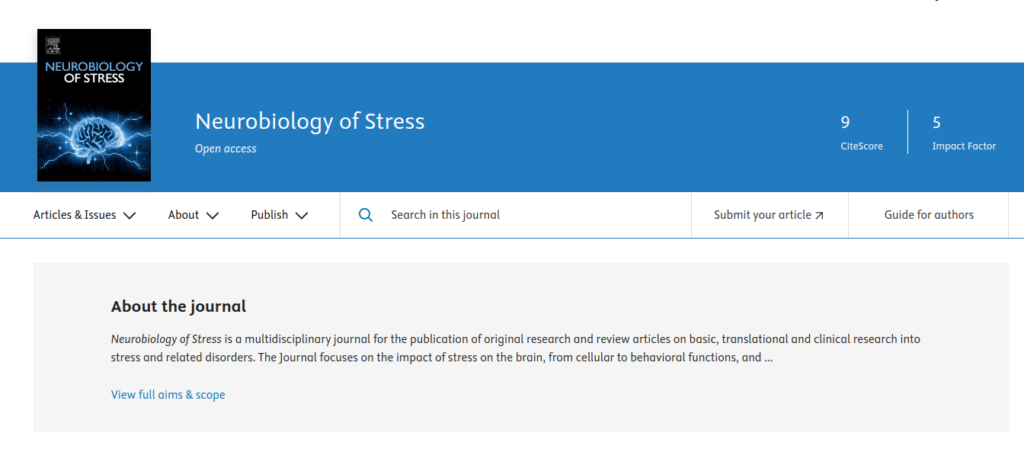Abstract
Journal devoted to the neurobiology of stress
Web and Email Links
Related Listings
Journal
PLOS ONE
The relaxation response (RR) is the counterpart of the stress response. Millennia-old practices evoking the RR include meditation, yoga and repetitive prayer. Although RR elicitation is an effective therapeutic intervention that counteracts the adverse clinical effects of stress in disorders including hypertension, anxiety, insomnia and aging, the underlying molecular mechanisms that explain these clinical benefits remain undetermined. To assess rapid time-dependent (temporal) genomic […]
Journal
PLOS ONE
Introduction Irritable Bowel Syndrome (IBS) and Inflammatory Bowel Disease (IBD) can profoundly affect quality of life and are influenced by stress and resiliency. The impact of mind-body interventions (MBIs) on IBS and IBD patients has not previously been examined. Methods Nineteen IBS and 29 IBD patients were enrolled in a 9-week relaxation response based mind-body group intervention (RR-MBI), focusing on elicitation of the RR and cognitive skill building. Symptom questionnaires […]
Journal
American Journal of Physiology
Mental states can markedly alter physiologic function. Hypermetabolic physiologic states, with an increased oxygen consumption, accompany anticipated stressful situations. Hypometabolic physiologic changes, other than those occurring during sleep and hibernation, are more difficult to produce. The present investigation describes hypometabolic and other physiologic correlates of a specific technique of meditation know as "transcendental meditation". Thirty-six subjects were studied, ea […]

